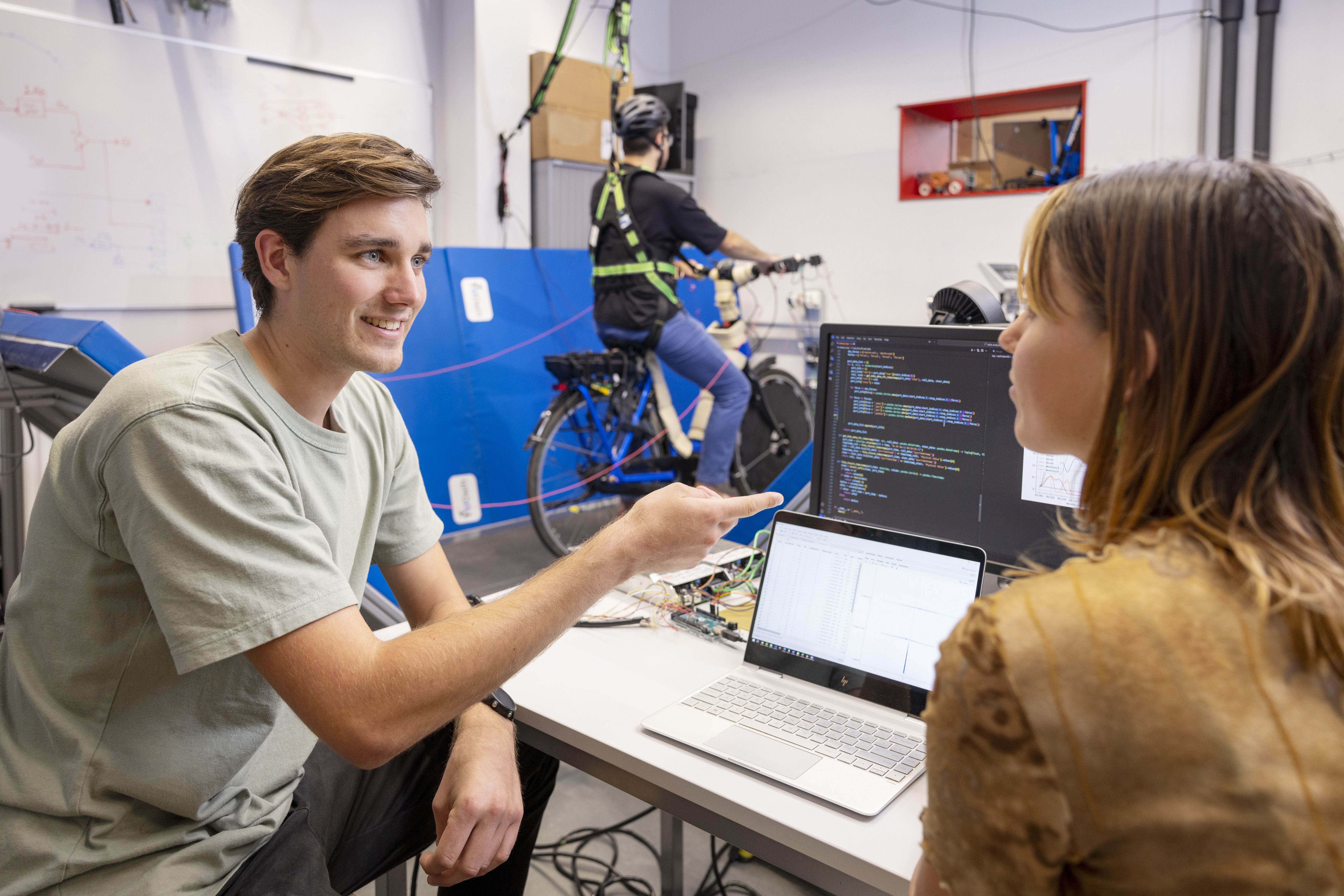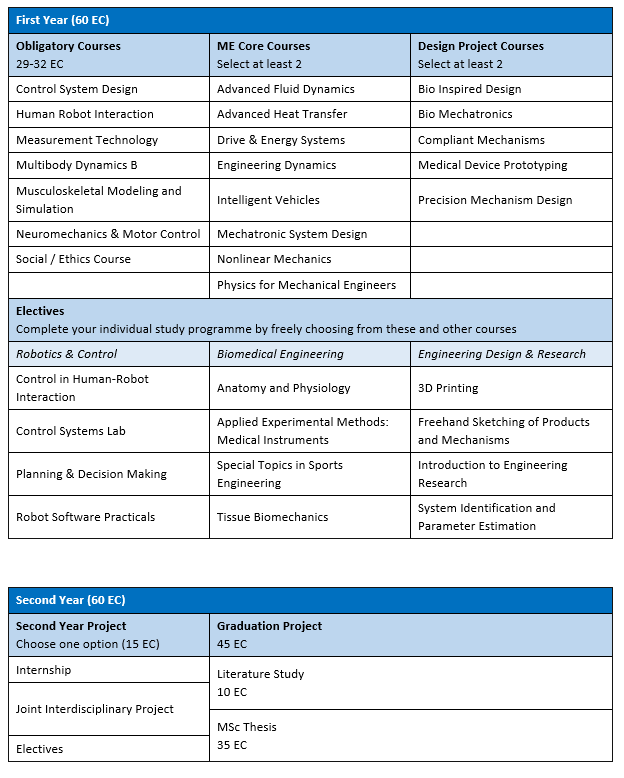MSc programme
The first year consists of a set of courses common to all Mechanical Engineering tracks, a social or ethics course, track-specific courses, and individual electives. In the first weeks of the programme, you put together your own individual study programme.
During the second year, you complete your MSc thesis project, preceded by a literature review and an internship, research assignment, joint interdisciplinary project, or extra elective courses. These projects are often in close collaboration with researchers at our faculty and part of cutting-edge research and development projects.
Students in the BioMechanical Design acquire a solid background in biomechanics, control systems, and mechanical design.
Working With Biological Systems
Until recently, powerful machines and robots were mainly found in industrial settings. But they are performing an ever wider variety of tasks in our society. The requirements for these systems are very different from those for industrial machines. Instead of accuracy and power, they require adaptability, safety, and a gentle touch. Physically interacting with humans out in the real world means operating in uncontrolled, unpredictable environments. Therefore, possible topics of study in BioMechanical design include robotic support systems, robot vision, and robot touch. You will learn how to design, simulate, and control robots, how to model the human body and brain as a control system, and how to create mechanisms that interact successfully with humans.
Learning From Biological Systems
Probably the greatest diversity of mechanical designs is found in nature. For each challenge posed by an often hostile environment, a wealth of solutions has evolved. Inspiration from nature drives the search for innovative solutions in such fields as medicine, rehabilitation, microsystems, and mechatronics. The study of biological mechanisms can provide the inspiration for innovative solutions to what are often uncommon challenges. You will learn, for example, how to use springs and elastic materials to make lightweight and inherently safe constructions, and how to develop mechanical systems that naturally complement the behavior of humans and other biological systems. You will gain knowledge about innovative design approaches and study methods to translate biological working principles into technological solutions.
The curriculum of the BioMechanical Design track (see table) is structured around three core topics: biomechanics, control systems, and mechanical design.
As part of the overall Mechanical Engineering programme, students are required to select a minimum of core mechanical engineering courses and a social or ethics course.
Within the BioMechanical Design track, students follow a core of compulsory courses specific to the track. These courses deal with control system design, human-robot interaction, human motor control, and human biomechanics. In addition, all ME-BMD students take at least two design project courses where creative mechanical design projects are conducted in interdisciplinary teams.
To complete your individual course package, you can choose freely from an extensive list of electives. You can choose to specialize in topics around robotics, control, and human motor augmentation, in biomedical applications such as prosthetics and the design of medical instruments, build on the compulsory courses with a more general set of mechanical engineering electives, or choose any combination of these.

